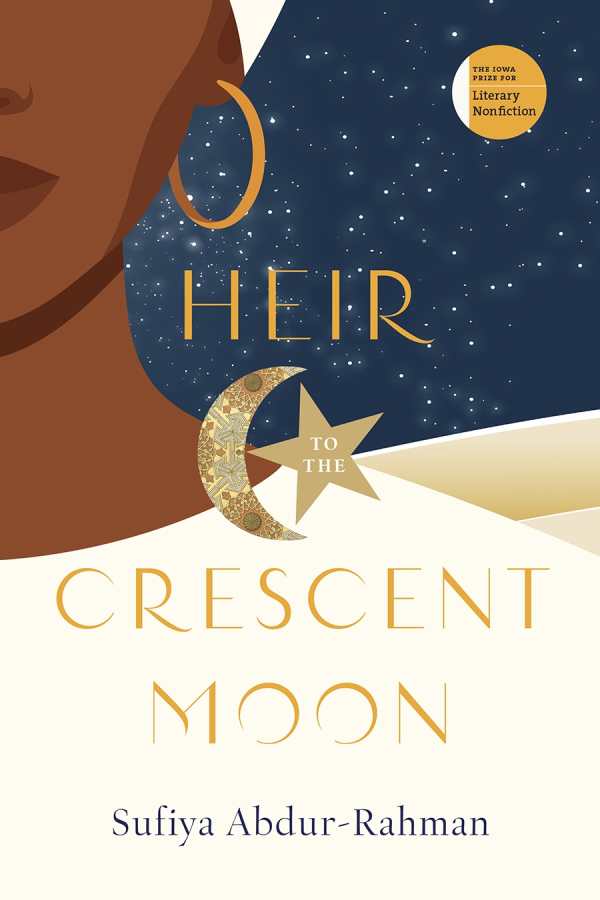Heir to the Crescent Moon
In her memoir Heir to the Crescent Moon, Sufiya Abdur-Rahman works to reconcile the faith of her heart with her upbringing.
Abdur-Rahman always knew she was Muslim, but her introduction to the faith was open to interpretation. Her father in particular instilled in her the value of self-determination: her family was Muslim, but that did not mean that his daughter would grow up to be Muslim, too. Her family prayed the Al-Fātiḥah before bed, and there the inclusion of Abdur-Rahman and her siblings in worship ended. But in her deepest heart, Abdur-Rahman felt Muslim.
To understand why she felt so deeply called to Islam, Abdur-Rahman traces her parents’ faith progressions, with particular attention to her father’s faith, which became the foundation of hers. Less radical, but still illuminating, is her mother’s work toward Islam. Abdur-Rahman writes with eloquence, emotion, and restraint, evoking a child’s curiosity and a young woman’s frustration. The smooth narrative weaves her childhood and adolescence with her father’s political awakening and eventual conversion to Islam. The connections and diversions between his evolution and hers are distinct, allowing for understanding of the personal joys and disappointments to be found when one is reconciling the humanity of a parent with their own identity.
The Al-Fātiḥah recurs throughout, both in transliterated Arabic and in an English translation, as a religious touchstone and reminder of family connections. Infused throughout the book is deep respect for Abdur-Rahman’s parents, which only becomes more pronounced as the book comes full circle with the birth of her first child. The faith that she nurtured in herself in fits and starts, that began with her parents, deepens her perception, leading to insights into the second-generation Black Muslim community.
Heir to the Crescent Moon is an expressive memoir about faith, family, and identity.
Reviewed by
Dontaná McPherson-Joseph
Disclosure: This article is not an endorsement, but a review. The publisher of this book provided free copies of the book to have their book reviewed by a professional reviewer. No fee was paid by the publisher for this review. Foreword Reviews only recommends books that we love. Foreword Magazine, Inc. is disclosing this in accordance with the Federal Trade Commission’s 16 CFR, Part 255.

